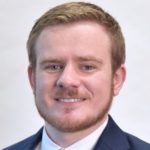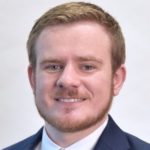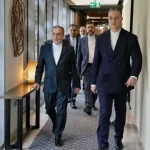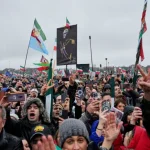
Assyrian monk Sefer Bilecen, known as Father Aho, was sentenced to 25 months in prison in April 2021 by the Turkish government.
The monk is accused of providing aid to a terrorist organization. While a steep charge, the reality of Father Aho’s conviction is far more sinister: It reveals the government-led persecution of minority religions, in this case the humble expression of traditional Christian charity and hospitality.
Father Aho was the caretaker of the Mor Yakup monastery in the southeastern border town of Nusaybin, Turkey. This is a historic monastery dating to the fourth century and was recently restored after being abandoned during the Ottoman genocide of Assyrian minority groups at the beginning of the 20th century. Father Aho used the monastery to minister to the local Syriac Christian minority, who primarily live in southeast Turkey.
One challenge of ministering in southeast Turkey is the ongoing conflicts in Syria and Iraq. Multiple terrorist and paramilitary organizations have engaged the Turkish military over the past decade, with some skirmishes crossing the Turkish border. One such group is the Kurdistan Workers Party (PKK), an outlawed political group in Turkey also labeled a terrorist organization by the international community.
Father Aho was charged with aiding the PKK. He provided bread and water to unknown individuals who came to his monastery in need of help. This is a common practice of charity across cultures and religions and is an integral part of a Christian monk’s beliefs.
Father Aho has continually stated that he was unaware of these persons’ political affiliation, but the Turkish government claims they were known members of the PKK.
Throughout the judicial proceedings, the monk has maintained his innocence. He cites the dictates of his faith, which compel him to provide help to strangers who arrive at his doorstep.
Father Aho never appeared in court. He was tried in secret in a closed courtroom. Many in the Christian community were wary of judicial abuse and assumed the court would render a fraudulent verdict. It was clear the Turkish government desired to limit the information getting out to the public.
Many in the West are ignorant of why Turkey — a modern country — would go so far as to imprison a monk for giving bread to those who came to his monastery. After all, Turkey is a member of NATO and a trusted Western ally, so how could it behave similarly to Russia, China or Saudi Arabia?
Minorities within the country, however, know the truth: Turkey is becoming increasingly fundamentalist. President Recep Erdogan instituted far-reaching neo-Ottoman policies following a failed coup in 2016, including heavy restrictions on certain civil liberties like freedom of speech and the press. However, the most impactful shift has been the oppression of minority religious and ethnic groups.
Erdogan has blamed religious minorities, specifically Christians, for the failed coup and the nation’s struggles. In the past five years, Turkey has attempted to convert historic Christian landmarks like the Hagia Sophia and Holy Saviour in Chora into mosques. There have also been reports of public sales of Armenian churches. In 2021, the U.S. Commission on International Religious Freedom listed Turkey on its special watch list for promoting religious- and ethnic-based nationalism which discriminates against certain groups.
The most frequent target is the Syriac Christians. Father Aho falls into this group, and understanding this helps to make sense of his charges and conviction. His willingness to provide charity to minority communities does not fall in line with the neo-Ottoman regime, which expects total compliance.
Sadly, the abuse suffered by religious and ethnic groups in Turkey is likely to worsen. The U.S. troop withdrawal from Afghanistan in 2021 and the subsequent collapse of the Afghan government caused a mass migration of refugees to various nations, including Turkey, which has also accepted refugees fleeing the Syrian civil war.
Turkey uses these refugees like bargaining chips against many European nations and mistreats those who seek refuge within its borders. Many of them escaped certain torment and death, but if history is a proper teacher, they may find themselves subjected to persecution.
Father Aho’s case goes beyond the life of a single monk. He represents the treatment of many religious minorities in Turkey and the consequences they may face for stepping out of line.
We must remember that he is not the first leader of a minority religious group to undergo the indignity of a kangaroo court. American pastor Andrew Brunson’s unjust imprisonment also showcased Turkey’s agenda-driven “justice” system. It took an international outcry and pressure from the U.S. government to free him, and Father Aho’s case will likely need similar intervention.
Thankfully, Father Aho has not been forgotten. On June 28, leaders from around the world will gather in Washington for the International Religious Freedom Summit, where they will discuss the most pressing threats to people’s right to belief. The summit will serve as a reminder to Turkey — and any other state that persecutes religious minorities — that intolerance will not be tolerated.
The views expressed in this opinion article are those of their author and are not necessarily either shared or endorsed by the owners of this website. If you are interested in contributing an Op-Ed to The Western Journal, you can learn about our submission guidelines and process here.






